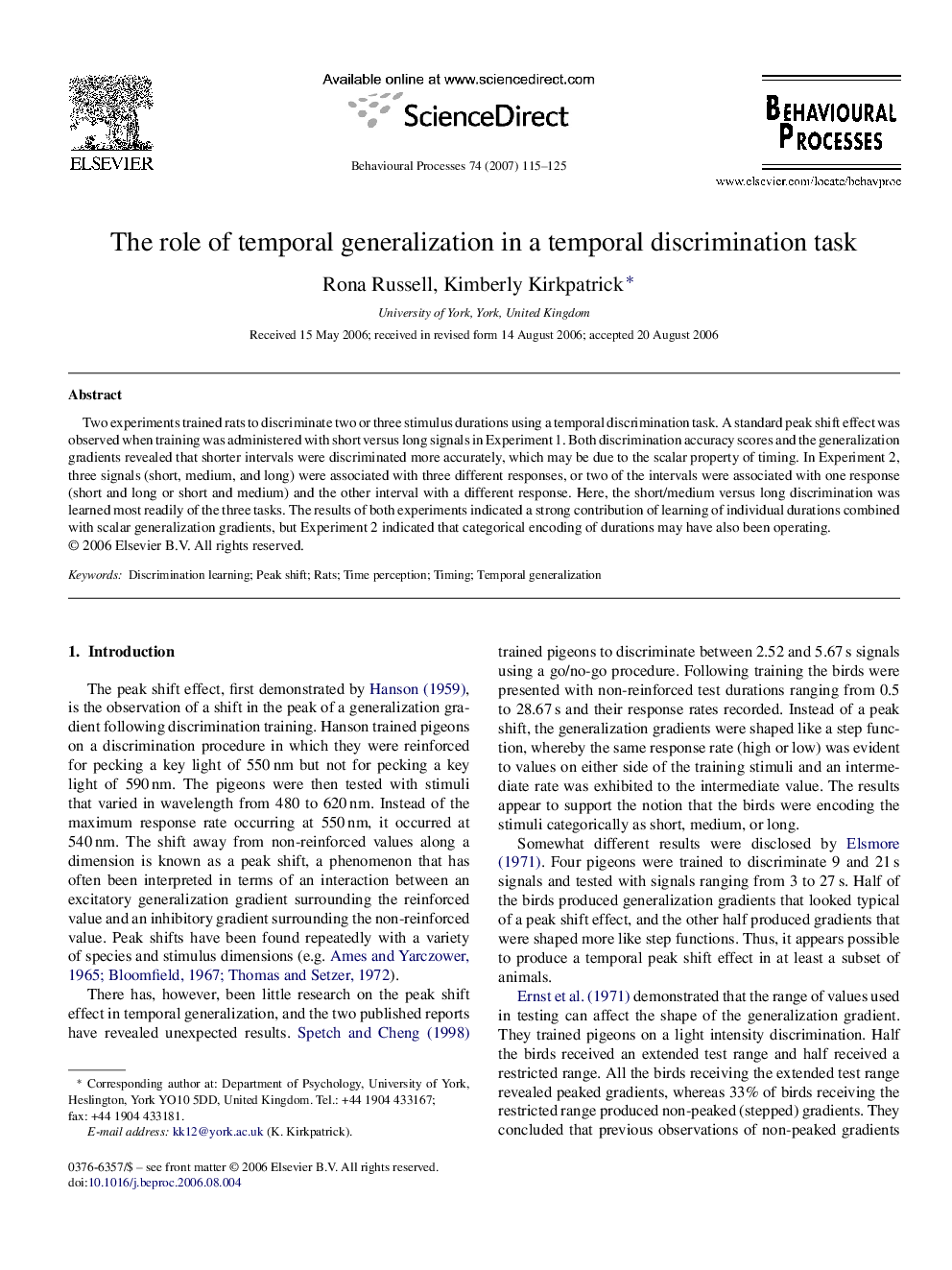| Article ID | Journal | Published Year | Pages | File Type |
|---|---|---|---|---|
| 2427759 | Behavioural Processes | 2007 | 11 Pages |
Two experiments trained rats to discriminate two or three stimulus durations using a temporal discrimination task. A standard peak shift effect was observed when training was administered with short versus long signals in Experiment 1. Both discrimination accuracy scores and the generalization gradients revealed that shorter intervals were discriminated more accurately, which may be due to the scalar property of timing. In Experiment 2, three signals (short, medium, and long) were associated with three different responses, or two of the intervals were associated with one response (short and long or short and medium) and the other interval with a different response. Here, the short/medium versus long discrimination was learned most readily of the three tasks. The results of both experiments indicated a strong contribution of learning of individual durations combined with scalar generalization gradients, but Experiment 2 indicated that categorical encoding of durations may have also been operating.
